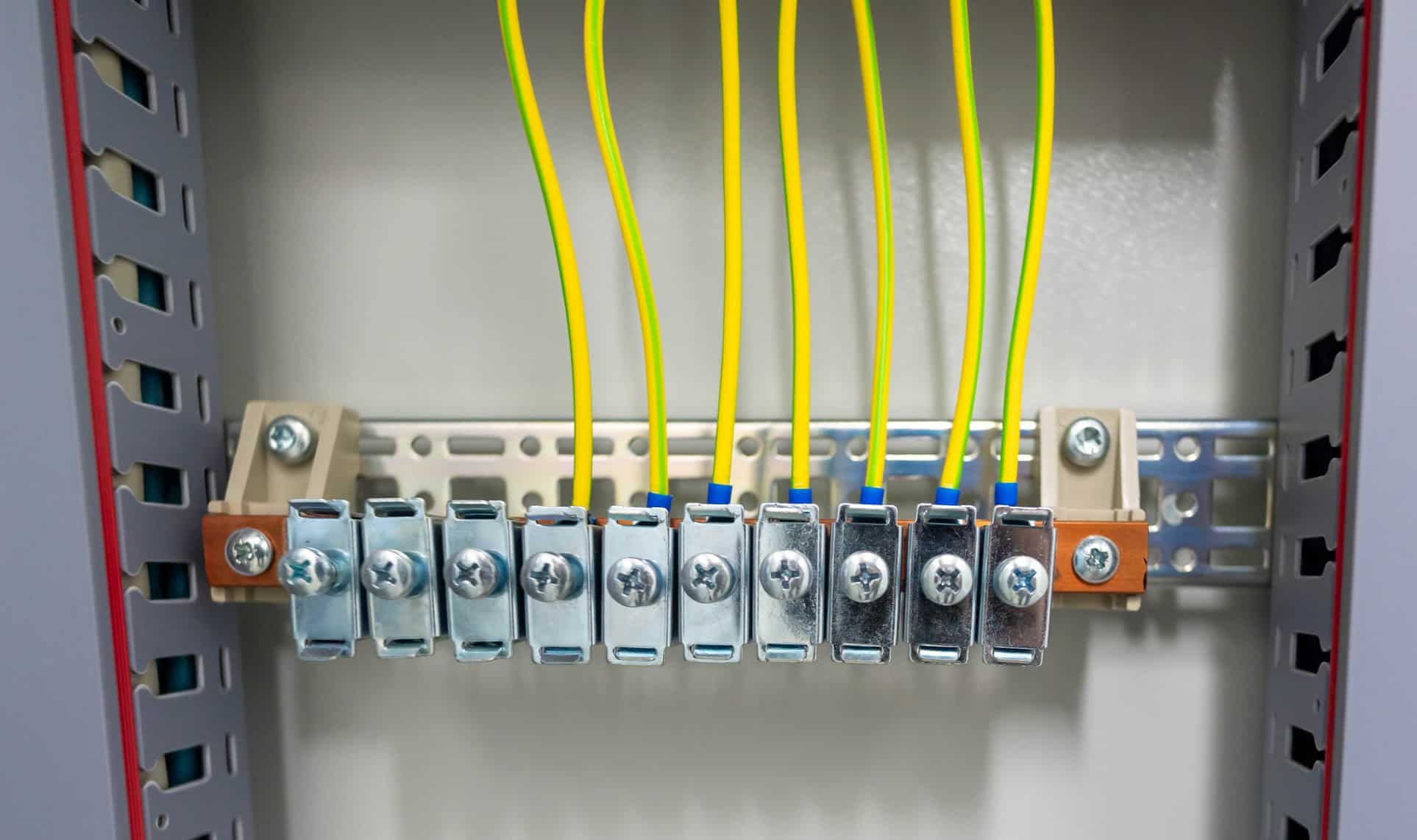In Columbia, SC, where homes range from historic to newly built, the application of the latest electrical grounding techniques can vary significantly. Each home’s unique wiring demands a tailored approach to grounding, highlighting the need for professional insight.
The significance of keeping up-to-date with electrical grounding techniques cannot be overstated. For residents in West Columbia, SC, and surrounding areas, staying informed means safeguarding their property and loved ones against unforeseen electrical issues. It’s not just about meeting regulatory standards, it’s about peace of mind. Knowing that your home adheres to the latest safety protocols brings a sense of security that is invaluable.
As we delve deeper into the subject, it’s clear that electrical grounding techniques are more than just technical necessities, they are critical components of a home’s electrical infrastructure. Whether you’re building a new home in Columbia, SC, or updating an older property in West Columbia, SC, understanding and implementing these techniques is key. With the right knowledge and expertise, ensuring the electrical safety of your home becomes a manageable and worthwhile endeavor.
The Importance of Electrical Grounding in Your Home
Understanding the importance of electrical grounding in your home is essential for ensuring the safety of your electrical system. This technique acts as a critical safeguard, directing any fault currents safely into the earth, thereby protecting your home in Columbia, SC, from potential electrical hazards. It’s a fundamental aspect of electrical safety that prevents the risk of electric shock, safeguarding your family and your property. By integrating advanced electrical grounding techniques, homeowners can significantly enhance their home’s electrical safety.
The evolution of electrical grounding methods has introduced more efficient and reliable ways to secure homes against electrical faults. In West Columbia, SC, professionals now employ sophisticated technologies and materials to improve the effectiveness of grounding systems. These advancements not only ensure compliance with the latest safety standards but also offer enhanced protection against electrical failures. As these techniques continue to evolve, they provide a robust defense against the dangers of electrical malfunctions.
Choosing the right electrical grounding technique for your home involves considering various factors, including the age of your property, the local environment, and specific regulatory requirements. Each home has unique electrical needs, making it crucial to seek expert advice to determine the most effective grounding solution. Specialists in this field can assess your home’s electrical system and recommend the best grounding practices, ensuring optimal safety and compliance with current standards. This personalized approach ensures that every home in Columbia, SC, and its surroundings benefits from the highest level of electrical protection.
Staying informed about the latest developments in electrical grounding techniques is vital for homeowners looking to maintain a safe and efficient electrical system. It’s not just about adhering to regulations, it’s about taking proactive steps to protect your home and loved ones. With the guidance of experienced professionals, residents of Columbia, SC, and West Columbia, SC, can ensure their homes are equipped with the most up-to-date and effective grounding technologies. This commitment to electrical safety is an investment in peace of mind, knowing your home is safeguarded against electrical hazards.
Latest Advances in Electrical Grounding Techniques
Exploring the latest advances in electrical grounding techniques reveals a world of innovation aimed at enhancing home safety. In Columbia, SC, professionals are now incorporating ground fault circuit interrupter (GFCI) outlets as a standard practice. These outlets quickly cut off power when a fault is detected, significantly reducing the risk of electric shock. This advancement marks a significant step forward in electrical safety, ensuring homes are more protected than ever.
In addition to GFCI outlets, there’s a growing emphasis on the use of advanced grounding rods. These rods, made from more conductive materials, are being installed in West Columbia, SC, to provide a more effective path for electrical currents to disperse into the ground. By improving the conductivity of grounding rods, electricians can enhance the overall safety of a home’s electrical system. This technique is particularly beneficial in areas prone to electrical storms, offering an extra layer of protection.
Another innovative approach involves the integration of surge protection devices at the point where electricity enters a home. These devices work by diverting excess electricity away from the home’s electrical circuits, protecting appliances and electronics from damage. By adopting this technique, homeowners can prevent the costly consequences of electrical surges. It’s a proactive measure that complements traditional grounding methods, adding an additional layer of security.
Finally, the implementation of smarter, more responsive grounding systems is on the rise. These systems are designed to monitor the electrical grounding status in real-time, alerting homeowners to potential issues before they escalate. Such smart technology represents the future of electrical grounding, promising a new era of safety and efficiency. As these technologies become more widespread, residents of Columbia, SC, and West Columbia, SC, can enjoy greater peace of mind, knowing their homes are equipped with the latest in electrical safety.
How Grounding Protects Your Electrical System
Understanding how grounding protects your electrical system is essential for homeowners in Columbia, SC. Grounding acts as a safety valve, directing any excess electricity away from your home’s electrical circuits and into the ground. This process significantly reduces the risk of electrical fires and shocks, making it a critical component of your home’s safety measures. By employing the latest electrical grounding techniques, you can ensure that your home is as safe as possible.
In West Columbia, SC, the use of enhanced grounding materials and methods has become increasingly common. These new techniques improve the efficiency and reliability of the grounding process, offering better protection against electrical faults. For instance, upgrading to copper grounding rods, known for their superior conductivity, can enhance the effectiveness of your home’s grounding system. Such advancements in materials are part of the ongoing evolution in electrical grounding techniques, aimed at keeping your home safe.
Moreover, integrating grounding with other safety measures, like installing GFCI outlets, further bolsters your home’s defense against electrical hazards. GFCI outlets quickly interrupt power flow when a fault is detected, complementing the grounding system’s protection. This dual approach ensures that your electrical system is equipped to handle issues more effectively, safeguarding your property and loved ones from potential harm. It’s a testament to how comprehensive grounding techniques can provide a robust safety net for your home.
Finally, staying informed about and implementing the latest electrical grounding techniques is a proactive step towards maintaining a secure electrical system. Residents of Columbia, SC, and West Columbia, SC, benefit from understanding these advancements and how they contribute to overall home safety. By embracing these innovations, you can ensure that your home remains a safe haven, protected from the risks associated with electrical faults. It’s an investment in peace of mind, knowing that your electrical system is grounded in the latest safety standards.
Electrical Grounding Techniques for Different Environments
Adapting electrical grounding techniques to different environments is crucial for ensuring safety across various landscapes. In Columbia, SC, where urban and suburban areas merge, professionals must consider the dense network of underground utilities. This complexity requires a strategic approach to grounding, ensuring that systems do not interfere with each other, yet still provide optimal protection. By customizing grounding methods to suit these conditions, electricians can safeguard homes against electrical faults effectively.
In contrast, West Columbia, SC, with its mix of residential and natural landscapes, presents unique challenges for grounding. Here, the presence of water bodies and varying soil types demands a more nuanced approach to grounding installations. Electricians often have to adjust the depth and type of grounding rods used to account for these environmental factors. Such adjustments ensure that grounding systems remain effective, regardless of the ground’s conductivity or moisture levels.
Furthermore, areas prone to lightning strikes or high electrical storm activity require specialized electrical grounding techniques. In such scenarios, the installation of advanced surge protection systems, alongside traditional grounding methods, offers double-layered security. This combination helps to divert excess electricity safely into the ground, protecting homes and electronic devices from potential damage. It’s a tailored approach that addresses the specific risks associated with these environments.
Lastly, the ongoing development of smart technology integrates into grounding practices, offering real-time monitoring of a home’s electrical status. This innovation is particularly beneficial in regions with fluctuating environmental conditions, allowing for immediate adjustments to grounding systems. Whether in the bustling streets of Columbia, SC, or the varied terrains of West Columbia, SC, these intelligent systems provide an extra layer of security, adapting to environmental changes to maintain optimal safety.
Common Mistakes in Electrical Grounding and How to Avoid Them
Understanding electrical grounding techniques is crucial, yet some common mistakes can compromise the safety of your home’s electrical system. One frequent oversight in Columbia, SC, is the improper connection of grounding wires. Ensuring these wires are securely attached to grounding rods and the electrical panel is vital. A loose connection could lead to a failure in directing fault currents safely into the ground, posing a risk of electrical shock or fire.
In West Columbia, SC, another mistake often encountered is the incorrect placement of grounding rods. Grounding rods need to be installed at a depth that complies with local regulations and is appropriate for the soil type. Placing them too shallow can render the grounding system ineffective, failing to protect the home from electrical surges. Professionals must assess the specific conditions of each site to determine the optimal placement.
Choosing the wrong type of grounding rod is a common error that affects the efficiency of electrical grounding techniques. Different materials, such as copper or galvanized steel, offer varying levels of conductivity and resistance to corrosion. Selecting a material that doesn’t suit the local environment or the home’s electrical demands can lead to inadequate grounding. It’s essential to consult with an expert to identify the most suitable material for your grounding system.
Lastly, neglecting regular maintenance and inspections of the grounding system is a mistake that homeowners should avoid. Over time, grounding components can deteriorate or become disconnected, compromising the system’s integrity. Regular checks by a qualified electrician can ensure that your home in either Columbia, SC, or West Columbia, SC, remains protected. Addressing issues promptly helps maintain the effectiveness of electrical grounding techniques, safeguarding your property and loved ones.
The Role of Grounding in Electrical Safety Standards
Grounding plays a pivotal role in adhering to electrical safety standards, ensuring homes in Columbia, SC, are protected from electrical hazards. By implementing modern electrical grounding techniques, homeowners can significantly reduce the risk of electrical shocks and fires. These techniques act as a foundational safety measure, creating a safe path for electrical currents to follow in case of a fault. It’s crucial for residents to understand how these systems contribute to their overall safety and compliance with regulations.
In West Columbia, SC, the integration of grounding into electrical systems is not just a recommendation but a requirement for meeting safety standards. Professionals in the area are well-versed in the latest grounding practices, ensuring that installations are up to code. This adherence to safety standards not only protects properties but also enhances the reliability of the electrical system. Homeowners benefit from the peace of mind that comes with knowing their system is built on a solid foundation of safety.
Electrical grounding techniques have evolved to offer more than just basic protection. They now include features that can detect and respond to grounding issues before they escalate into serious problems. This proactive approach to electrical safety is a testament to the importance of grounding in protecting homes. It underscores the need for ongoing education and adaptation to the latest standards and technologies.
Finally, maintaining a grounding system is as important as its initial installation. Regular inspections and upkeep ensure that the system remains effective and compliant with current safety standards. For residents in Columbia, SC, and West Columbia, SC, enlisting the help of a professional to check their grounding systems can prevent potential electrical failures. This maintenance is a key step in ensuring that homes continue to meet the high standards set by electrical safety regulations.
Comparing Traditional and Modern Electrical Grounding Techniques
When comparing traditional and modern electrical grounding techniques, it’s clear that advancements have significantly enhanced safety measures. Traditional methods, while effective in their time, often relied on simpler technology and materials that may not meet today’s standards. In contrast, modern techniques in Columbia, SC, use advanced materials and designs that offer better conductivity and durability. This evolution marks a significant step forward in protecting homes from electrical hazards.
Modern grounding systems incorporate smart technology that can detect and mitigate grounding issues before they become serious problems. For example, in West Columbia, SC, newer homes might feature grounding systems that continuously monitor electrical flow and ground integrity. This proactive approach contrasts with traditional systems, which typically only react to issues as they arise. Such innovations provide homeowners with an added layer of security and peace of mind.
The materials used in electrical grounding techniques have also seen a significant upgrade. Whereas older systems might have used whatever materials were readily available, often leading to quicker degradation, modern systems favor materials like copper and galvanized steel. These materials not only ensure a longer lifespan for the grounding system but also improve its overall effectiveness. This shift highlights the industry’s move towards more reliable and efficient grounding solutions.
Lastly, the implementation of modern electrical grounding techniques reflects a broader commitment to safety and compliance with current standards. Both Columbia, SC, and West Columbia, SC, benefit from these advancements, as they ensure homes are equipped to handle today’s electrical demands safely. By embracing modern grounding methods, communities can significantly reduce the risk of electrical fires and shocks, safeguarding both property and lives.
Frequently Asked Questions
What are electrical grounding techniques?
Electrical grounding techniques are essential for ensuring the safety of a home’s electrical system. They work by creating a safe path for excess electricity to travel to the ground. This process helps prevent electrical shocks and fires. By staying updated with the latest methods, homeowners can ensure their systems are as safe as possible.
Why is grounding important in electrical systems?
Grounding plays a crucial role in protecting your home from electrical hazards. It directs any excess electricity safely into the earth, reducing the risk of shocks or fires. This process also helps stabilize voltage levels, ensuring your appliances work efficiently. By incorporating the latest electrical grounding techniques, you enhance the safety and functionality of your home’s electrical system.
How have electrical grounding techniques evolved?
Electrical grounding techniques have seen significant advancements over the years. Initially, systems were basic, focusing on direct paths to the earth. Now, they incorporate sophisticated materials and designs to enhance safety and efficiency. These improvements ensure better protection against electrical shocks and fires for homes and buildings.
What tools are used in electrical grounding?
In the world of electrical grounding, various tools are essential for ensuring a safe and effective setup. Grounding rods, made of copper or galvanized steel, are driven into the ground to create a physical connection to the earth. Wire strippers and clamps are also key, used for securing grounding wires to the rods and electrical system. Lastly, multimeters help technicians verify the grounding system’s integrity, ensuring it functions correctly to protect your home.
Can new electrical grounding techniques improve safety?
Yes, new electrical grounding techniques can significantly boost safety in homes. By adopting advanced methods, homeowners can better protect their property from electrical hazards. These innovations help in efficiently directing excess electricity into the ground, reducing the risk of shocks and fires. As technology progresses, these techniques become more effective, ensuring a safer environment for everyone.






